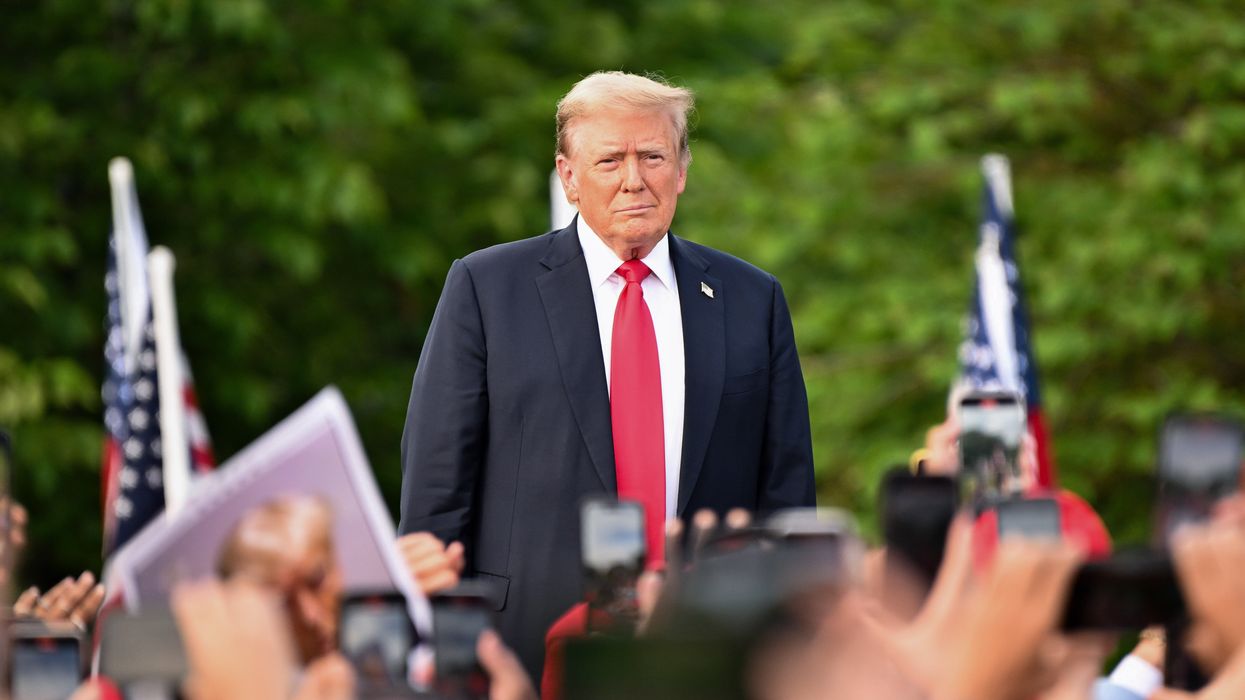Elwood is the author of “ Defusing American Anger ” and hosts the podcast “ People Who Read People.”
In a recent speech addressed to Christians, former President Donald Trump said they should vote for him because doing so would mean, “You won’t have to vote anymore.” This provoked much criticism. For example, Vice President Kamala Harris’ campaign said Trump’s statement was a "vow to end democracy."
But, as with many things Trump has said, there can be multiple meanings here. I myself think there’s a good chance Trump was, in his typical over-the-top way, trying to communicate something like, “This election is so important; if you vote for me, it’s going to have such a huge positive effect for you that future elections will pale in comparison.” I think there’s a decent chance Trump was, in his over-the-topness, trying to be a bit humorous, as others have suggested.
I, of course, can’t be sure. And that’s the point: No one can.
A major way our toxic divides grow is by so many of us having overly pessimistic views of our political opponents. We too often take the worst-case-possible views of everything “they” do and say. We engage in mind-reading, believing that we understand the malicious motivations behind even the most off-the-cuff and ambiguous statements and actions.
Our pessimistic reactions in turn add to the vicious cycle of conflict. Outsized contempt and fear beget more contempt and fear. (This is not to say there aren’t things to be concerned about; it’s just to say that conflict can amplify our fears.)
When we take the worst-case interpretations of everything Trump (or anyone) says, we amplify the toxicity of our conflict. Such things bolster the narrative that Trump and his supporters are being treated unfairly by the liberal establishment. It results in genuine and understandable Republican-side grievances and anger.
People’s degree of certainty plays a role here. It’s one thing to say, “Trump might have meant X.” It’s another thing entirely to say, “Trump definitely meant X.” Calling Trump’s statement a “vow to end democracy,” as the Harris campaign did, is not only highly pessimistic; it’s also highly certain. And that certainty will bother people who recognize that Trump’s statement can be interpreted in different ways (just as it bothers liberals when Republicans do similar things).
In short, overly negative takes about Trump help Trump. Avoiding highly pessimistic and certain interpretations is the right thing to do, on its own — but it’s also something politically passionate people should do for purely practical reasons.
In many interviews, Trump voters have said that Trump’s unfair treatment, as they see it, is a factor in their support for him. We can also look at work that shows that group-aimed insults — which highly pessimistic takes about Trump will be seen by some as representing — amplify conflict. We can also look at research showing that insults can have a boomerang effect and make someone’s initial beliefs more extreme and committed.
This dynamic has played out for many ambiguous things Trump has said. There was the “very fine people” statement, there was the “ stand back and stand b y” statement, there was the “ They’re rapists ” statement, there was the recent “bloodbath” statement. In my book “Defusing American Anger,” I have a chapter on our divergent views of Trump, in which I examine liberal-side interpretations of some of these statements — as well as the more positive interpretations Trump supporters had. To understand our divides — and lessen them — we must see how our polarized narratives shape and mold our views on so many events and behaviors around us.
Some will object: “But Trump has done and said many clearly bad things; giving him a break is a naive mistake. He’s earned our pessimism.” But that is not a reason for us to interpret things in the worst possible way; it’s an excuse for doing so. Conflict leads many of us, on the right and left, to instinctually have highly negative and adversarial reactions — but we must see that that’s not the right thing to do, nor does it help us.
When I’ve talked to Trump voters, there are things they see as problematic and worrying about Trump. People who wish to persuade their fellow Americans of Trump’s unfitness to lead should talk about those more agreed-upon and less ambiguous things. (And I’d say the same to Republicans: There are many real things to criticize Democrats for without reaching for extremely pessimistic and mind-reading arguments.)
To succeed in reducing political toxicity (and the extremism that such toxicity helps generate), we’ll need more people to consider how biased, emotional reactions worsen our divides — and to also consider how those reactions can aid our more polarized opponents.



















 From left to right: Gabriel Cardona-Fox, Bud Branch, Joe Concienne
From left to right: Gabriel Cardona-Fox, Bud Branch, Joe Concienne 